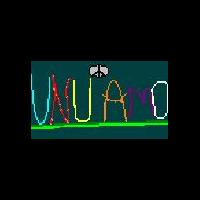글: 72
언어: English
Roberto12 (프로필 보기) 2009년 12월 22일 오후 2:46:05
horsto:In the beginning it was also difficult for me to pronounce these words, but now it's easier. The trick is to begin with the s, and then, after some time, pronounce the rest, f.e. s-ci-en-coI'm the same. My advice to people is this: just say the God-damn word!

RiotNrrd (프로필 보기) 2009년 12월 22일 오후 4:25:56
But I have no trouble pronouncing it now. I just say the "s" sound, then say the "ts" sound, with a slight stop between them. scii: ssss-tsee-ee. If you think of the English "st" as one sound, you'll have trouble; it's easiest if you break them apart.
erinja (프로필 보기) 2009년 12월 22일 오후 6:16:48
Rogir:As I said, no often-used roots, except for scienco, which is related. Ah well, I can pronounce it anyway so it's not really my problem.Do you mean to say that you don't spend your days talking about squirrels incessantly (sciuro)???

Greyshades (프로필 보기) 2009년 12월 22일 오후 11:53:15
ceigered (프로필 보기) 2009년 12월 23일 오전 5:38:55
 )
)Same-Aurochsen aside, this has got me thinking - does Esperanto ever use "¨" like in English, French or Dutch to signify that a following vowel is seperate e.g. "coördination", "naïf", "Australië"? (in this case I'm guessing it would be "sciï"?)
Of course normally it wouldn't matter because unless it's a ux or a j it's not really a diphthong, but just curious if anyone does use "¨" in esperanto.
Polaris (프로필 보기) 2009년 12월 23일 오전 6:00:37
While I honestly don't like the use of the letter C when pronounced as TS (why a letter made up of other sounds? Why not just use a TS for that sound?), it bothered me greatly that they would just skip the letter, so I never adopted that. Now I'm glad I didn't.
Like it or not, it's not really all that hard to pronounce. Anyone who can say the English word "nests" ought to be able to prounounce the Esperanto word "scii".
erinja (프로필 보기) 2009년 12월 23일 오후 2:42:30
ceigered:does Esperanto ever use "¨" like in English, French or Dutch to signify that a following vowel is seperate e.g. "coördination", "naïf", "Australië"? (in this case I'm guessing it would be "sciï"?)No, Esperanto doesn't do that. Officially Esperanto doesn't even have dipthongs, not in the traditional sense of the word, anyway. That is, the dipthonged letters are technically pronounced exactly the way the letters would be in isolation, and the sound just happens to come up sounding "dipthongy", to coin a word
Of course normally it wouldn't matter because unless it's a ux or a j it's not really a diphthong, but just curious if anyone does use "¨" in esperanto.

Rogir (프로필 보기) 2009년 12월 23일 오후 3:36:37
Jes (프로필 보기) 2009년 12월 23일 오후 5:11:34
Anyword containing j or ŭ next to a vowel should be pronounced as a diphthong -as far as I am concerned.
Try these ones for instance:
Lernejo
Ankaŭe
Ĥoroj

preĝejoj
ktp
ceigered (프로필 보기) 2009년 12월 23일 오후 5:33:42
Nevermind though, not a very important question








